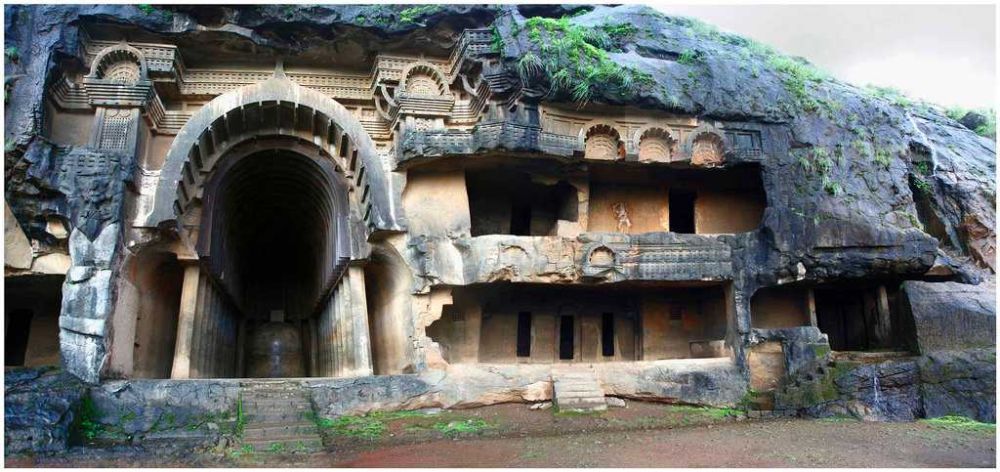

The Bhaja Caves are an impressive cluster of ancient Buddhist rock-cut monuments situated near Lonavala, a popular hill station in the state of Maharashtra, India. These caves, which date back to around the 2nd century BC, have been a significant point of interest for historians, archaeologists, and tourists alike. The site exemplifies the rich religious and artistic heritage of ancient India, drawing visitors from around the world to witness the intricate carvings and peaceful surroundings.
The history of the Bhaja Caves is deeply intertwined with the history of Buddhism in India. As Buddhism spread across the Indian subcontinent, monastic communities required places for worship and shelter, especially during the monsoon season. The result was the construction of rock-cut caves like Bhaja, which served as viharas (monastic dwellings) and chaityas (prayer halls).
The caves comprise 22 individual excavations, with Cave 12 being the most notable as it houses a beautifully detailed chaitya hall with a unique stupa. The presence of inscriptions and stupas suggests that the complex was patronized by both local merchants and rulers, which contributed to its development as a crucial site for Buddhist learning and worship.
Visitors to the Bhaja Caves can also find relic containers, intricately carved wooden beams and rafters (though few original wooden fragments have survived), and the iconic horseshoe-shaped chaitya arches. These aspects of Bhaja Caves highlight the architectural prowess of the craftsmen of that period. The caves are also home to several carvings depicting Indian mythology, including depictions of dancers, animals, and scenes from everyday life.
Tourism at the Bhaja Caves has grown steadily since the site received attention from the Archaeological Survey of India and was designated as a protected monument. Visitors began flocking to the caves to marvel at the ancient structures and the serene landscape. The accessibility of Lonavala, with its pleasant climate and proximity to cities like Mumbai and Pune, has made it an ideal weekend destination, thereby increasing the popularity of the Bhaja Caves.
In recent years, the site has become an essential part of the tourism circuit that includes other nearby attractions, such as the Karla Caves, Lohagad Fort, and Bhushi Dam. Travelers seeking a blend of history, culture, and natural beauty have elevated Bhaja Caves to a must-visit destination for history buffs and nature enthusiasts.
Sustainable tourism has become increasingly important in recent years, and efforts are being made to preserve the historical integrity of the Bhaja Caves while accommodating tourist activities. Tourist facilities such as information centers, guided tours, and educational materials have been enhanced to provide a more informed experience for visitors. Additionally, eco-friendly practices are being encouraged to minimize the impact on the surrounding environment.
Digital technology is also changing the way tourists experience the Bhaja Caves. Virtual tours and augmented reality applications are being developed to provide a more interactive and immersive experience, particularly for those who cannot visit in person. This use of technology complements physical tourism, allowing for a broader appreciation of the site's history and cultural significance.
Emphasizing experiential travel, tourists today frequently combine their trip to Bhaja Caves with activities such as trekking, camping, and exploring the beautiful landscapes of the Western Ghats, one of the world's biodiversity hotspots.
The preservation of the caves is a priority, and organizations such as the Archaeological Survey of India have put forth regulations to protect the integrity of the site. Conservation efforts include regular maintenance, controlling the growth of vegetation, and monitoring of the site to guard against vandalism and weathering.
Looking forward, the future of tourism at the Bhaja Caves seems promising. With continued efforts in preservation and responsible tourism, as well as the development of visitor facilities and services, Bhaja Caves are expected to remain an iconic destination for cultural and historical tourism in Maharashtra.